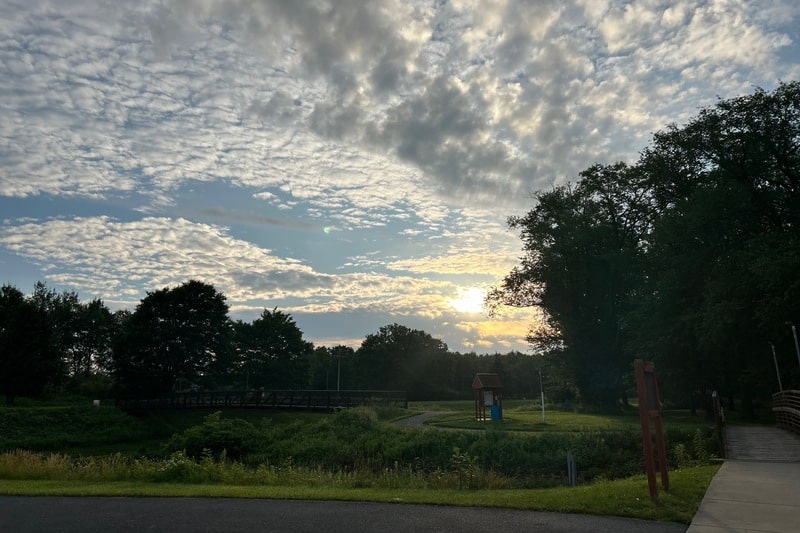Although people often associate abuse with children or spouses, elder abuse is actually one of the most frequently occurring types of abuse. Any mistreatment or neglect of an older individual, whether it’s by a family member or professional caregiver, is a form of abuse. Furthermore, elder abuse doesn’t need to be physical. Like other instances of abuse, elders can suffer emotionally and financially even if no physical harm occurs. What should you know about elder abuse, and how can you see the signs?
Types of Elder Abuse
https://gty.im/1244651082
Elder abuse goes unnoticed for many reasons. In some cases, it’s because the person lives at a care facility and has limited interaction with family and loved ones. In other cases, it’s unnoticed because the signs aren’t obvious. And in other cases, the abused is reluctant to speak up because they feel embarrassed or they are physically unable to do so. Understanding the different types of abuse makes it easier to spot the signs.
Physical Abuse
People often associate abuse with only physical harm that leaves behind bruises, burns, cuts, fractures, and other physical injuries. Of course, it’s possible to hide these signs, but doing so is more difficult than hiding signs of other types of abuse.
Emotional or Psychological Abuse
Emotional abuse is far more common in relationships than physical abuse. This is true for all relationships, including those with elderly people. The signs of emotional or psychological abuse include withdrawal, depression, and anxiety. If you notice a sudden emotional change in a loved one, it could indicate abuse. It’s important to speak to a doctor about the situation because changes could also indicate other issues, all of which need to be addressed.
Financial Abuse
Financial abuse is another common form of abuse of the elderly. As people grow older, they are often forced to relinquish control of their finances. They might turn over the management of their money to a loved one or need to call on a professional to handle financial responsibilities. In some cases, a professional caregiver who is not a family member assumes the role of money manager. In any of these cases, financial abuse can occur. Signs of financial abuse include bills going unpaid, missing money or belongings, and unexplained financial transactions.
Neglect
Like abuse, neglect creates physical symptoms. This is one of the most common issues that older adults face. In some cases neglect is due to negligence, but in other cases caregivers are overwhelmed and unable to provide the appropriate level of care. Signs of neglect include malnutrition, dehydration, poor hygiene, and unsanitary living conditions.
Sexual Abuse
Older adults are sometimes victims of sexual abuse. Signs of sexual abuse include STDs, unexplained injuries to the genitals and other private areas, and sudden changes in behavior.
In general, if your elderly loved one develops any of the following symptoms, it’s important to speak to them and/or contact a medical professional:
- Sudden withdrawal from activities they once enjoyed
- Uncharacteristic anger, anxiety, or depression
- Reluctance to speak in the presence of caregivers
- Unexplained injuries, including bruises, burns, or broken bones
- Malnutrition or unexplained weight loss
- Sudden changes in financial situation
- Unkempt living conditions
What Should You Do If You Suspect Elder Abuse?
If you suspect your loved one is being victimized by a caregiver, it is within your rights and theirs to contact the police or protective services. This isn’t always necessary, but it is recommended if you believe someone is in danger.
It’s also important to understand that some of these symptoms are associated with illnesses and decline that come with age for some people. Working with a trusted doctor can help you determine the type of problem you and your loved one are facing.
In addition to contacting medical professionals and/or law enforcement, there are several other things you should do if you suspect an elderly loved one is being abused. For example:
- Document any evidence of abuse, including photographs of injuries
- Speak to your elderly loved one privately when only you and other trusted loved ones are present
- Contact adult protective services and medical and legal professionals for guidance
Conclusion
Elder abuse is a sad reality. The good news is there are ways you can reduce the risk or stop the abuse from occurring. Knowing what to look for and what to do if you suspect elder abuse is the first step. There are many different types of abuse that can occur, so this article breaks down many common types so you can protect the people around you.
For More Great Content
Are you desiring top-tier content that covers everything? From thrilling sports and intoxicating entertainment news to gaming tips and professional betting advice, Total Apex covers it all. Delve into our no-fluff articles to stay ahead of the game with the latest sports action, uncover the hottest trends in entertainment, and get the latest scoops in the gaming industry that will take your experiences to the next level.
Finally, our betting advice will give you a decisive edge over the competition and increase your odds of beating the books. Whether you’re looking to stay updated or gain a competitive edge, Total Apex is your one-stop shop for all things compelling and relevant. Don’t forget we cover Fantasy Sports, too!
Check out all our sites: Total Apex Sports, Total Apex Fantasy Sports, Total Apex Entertainment, Total Apex Sports Bets, and Total Apex Gaming. Out of the ashes of obscurity will rise a beast. Always remember to Respect The Hustle! Follow us on Twitter/X @TotalApexSports to stay informed.










